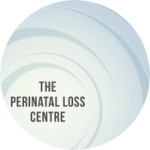Stillbirth and neonatal loss: Information for therapists

Stillbirth refers to the death of a baby before or during birth from 20 weeks of pregnancy (Australia and New Zealand Stillbirth Alliance). “In Australia, one in every 135 pregnancies that reach 20 weeks will end with a stillborn child” (Royal Women’s Hospital, Melbourne). Neonatal loss refers to the death of a baby within 28 days after birth.
What therapists need to know
- The experience of one’s baby dying before, during or after birth, is traumatic. It is a devastating experience for expectant parents to deliver their baby who has died, or to have their baby die after birth. The death of a baby can bring about profound and overwhelming grief.
- Working with clients who have lost their babies through stillbirth or neonatal death can be confronting and challenging, especially if the therapist is insufficiently trained in perinatal loss and bereavement.
- The loss of a baby represents the loss of hopes, dreams and plans for the future. Your clients may have (from early on in pregnancy) formed loving bonds with their unborn baby. They may have dreamt about their future family well before the pregnancy began. In most cases, clients have shared their happy news with friends and family. There is likely to be a shared meaning surrounding the baby’s arrival into the family. The death of a baby is also shocking and sad for people in the bereaved parents’ circle.
- Clients may have taken a long time to fall pregnant, they may have experienced previous miscarriage/s, or may have gone through assisted reproduction (e.g. IVF) which can have been a long and arduous journey in itself. They may fear being unable to have another baby. They may feel the pressure of age/time.
- Clients may have no explanation for the cause of their stillbirth.
- Friends and family vary in their capacities to support bereaved parents. Bereaved parents often report that after a while, friends and family expect them to ‘get over’ the loss, to ‘just try for another baby’, or expect that a subsequent pregnancy will make ‘everything okay’. This is not the case. No other baby can replace the baby who died.
- The experience of stillbirth or neonatal loss can exacerbate anxiety in subsequent pregnancies.
- The experience of stillbirth or neonatal loss can bring up past experiences and trigger other mental health challenges.
- Some people can develop complicated grief, depression, or PTSD.
Supporting clients through stillbirth
When working with perinatal clients, it is important to understand:
- The meaning of the pregnancy for the individual client
- The unique experience of the loss (both physically and emotionally)
- The impact of the client’s conception history
- The client’s attachment (bond) to their baby
- The social and cultural context within which the loss occurred
- How they might want to remember their baby who died
- The difference between typical grief and bereavement, mourning, complicated grief, depression, and PTSD
- The client’s past and current mental health difficulties, including issues of risk
- The impact of loss on subsequent pregnancies and parenting
Most importantly, therapy support involves listening and validating the feelings of grief and loss; providing a holding environment in which all thoughts and feelings can be expressed. Although there are no particular interventions prescribed for grief counselling, you may draw upon a number of therapeutic approaches.
In therapy, clients may look to you for the following:
- To be fully heard
- To have their grief symptoms and trajectory of their grief normalised
- To debrief their experience of loss
- To discuss ways in which to honour/remember their baby
- To discuss their feelings around the support or lack of support of family and friends
- Managing fear and anxiety relating to conceiving again, future pregnancies, and birth
- Help with disentangling unhelpful beliefs and narratives
- Self-care
- Therapy for past and/or concurrent issues that have affected the client’s life (that may have been triggered by the loss)
- Help with finding support groups
- Support with parenting after loss
Therapist training in perinatal loss
Online Training: “Perinatal Loss in Practice: What Therapists Need to Know”
Delivered by Dr Renée Miller, Perinatal Clinical Psychologist, The Perinatal Loss Centre
COPE accredited training program (6 hours)
What you will learn:
- Understand the different types of losses and the psychosocial consequences of perinatal loss – from pre-conception through the postnatal period and beyond.
- Conceptualize childbearing as an adult developmental stage (self-narratives, meaning, social, and cultural contexts).
- Understand grief, loss, and adaptation to loss, as a function of attachment.
- Become informed about grief theories.
- Discern the typical grief trajectory from complicated grief.
- Understand perinatal loss within the biopsychosocial model of perinatal mental health.
- Use frameworks for assisting clients in adjusting to loss through fertility. challenges, subsequent pregnancies, and parenting after loss.
- Apply therapeutic approaches to counselling clients who have experienced perinatal loss.
For more information: www.theperinatallosscentre.com.au/online-training
 This information was developed in partnership with the Perinatal Loss Centre.
This information was developed in partnership with the Perinatal Loss Centre.
The Perinatal Loss Centre provides support to health professionals and families affected by the death of babies.
For more information, visit their website here